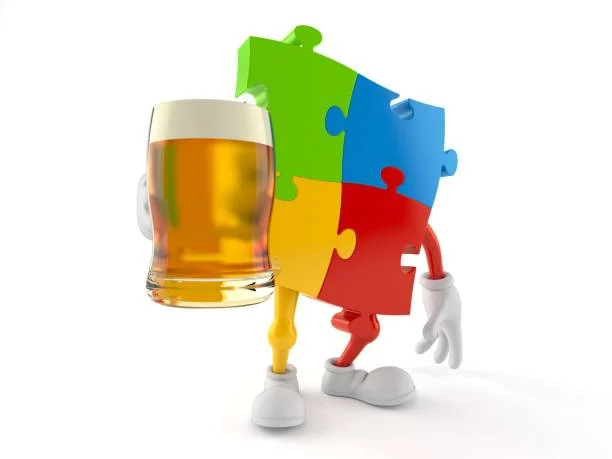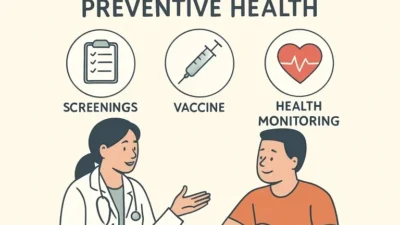Recovery from alcohol use isn’t a straight road. It twists, doubles back, and sometimes feels like you’re on a detour with no clear signs. What makes the difference between giving up and moving forward often comes down to flexibility. People who adapt when life throws them curveballs tend to keep their footing, while rigid plans can crack under pressure. Flexibility doesn’t mean a lack of discipline or commitment, it means knowing that the recovery path isn’t carved in stone and being willing to adjust without shame or defeat.
The Shifting Nature Of Recovery
For many people, the early days of sobriety feel like learning to walk all over again. There’s the urge to plan every step, structure every hour, and hold on for dear life to whatever keeps them grounded. Structure helps, but life rarely respects a perfect schedule. Birthdays, work stress, sudden loss, or even good news can shake up the routine. When recovery hinges on one rigid formula, unexpected disruptions can feel like disasters.
Flexibility shows its value in those moments. It gives someone the ability to swap strategies without unraveling progress. If one coping mechanism doesn’t cut it, there are others to try. If a certain support meeting isn’t available, maybe journaling or calling a trusted friend fills the gap. By allowing recovery to be fluid, setbacks become part of the process rather than evidence of failure.
Adapting To Modern Tools
The past decade has opened doors that didn’t exist for earlier generations. Online programs have become lifelines, especially for those who can’t always attend in person. What might seem unconventional, like drug rehab over Zoom, has turned into a bridge for people with packed schedules, mobility challenges, or rural addresses far from treatment centers. Flexibility here isn’t about convenience alone; it’s about accessibility. When someone can reach support without leaving home, the likelihood of sticking with recovery tools goes up dramatically.
This shift also redefines what community looks like. While face-to-face connection carries its own irreplaceable energy, digital platforms provide consistency. A person doesn’t have to choose between attending their child’s recital and staying plugged into recovery resources—they can have both. It removes the old binary of “all or nothing” that often made recovery feel rigid. Flexibility, in this sense, is about ensuring people aren’t forced to choose between life’s obligations and healing.
The Role Of Science In Staying Flexible
Flexibility isn’t just about lifestyle; it’s rooted in science. Treatments backed by research have shown that recovery isn’t one-size-fits-all. Cognitive behavioral therapy, motivational interviewing, medication-assisted treatment, and group-based approaches all have their place. Sometimes one works best alone, and other times, a mix is the answer. What matters most is that plans can shift. Having access to evidence-based treatments makes it easier for people to adapt without second-guessing their choices.
Science also supports a long view. For example, medications like naltrexone or acamprosate may help someone in the short term but not feel necessary later. A person might start with intensive therapy, then scale back once daily life stabilizes. Or they may circle back when stress rises again. The key is knowing that flexibility doesn’t erase commitment; it strengthens it by keeping options open and rooted in what actually works.
Making Room For Real Life
Recovery doesn’t happen in a vacuum. People have jobs, kids, marriages, aging parents, and bills that don’t stop for sobriety. Expecting life to pause for recovery creates an impossible standard. The more flexible the approach, the easier it is to weave recovery into ordinary life. That might look like switching a weekly meeting to a walk with a supportive neighbor, or keeping a journal app handy during a workday.
Some of the most lasting progress happens when people stop trying to force their lives into a rigid recovery mold and instead let recovery bend with life’s daily rhythms. Sobriety doesn’t have to look the same every week. What counts is finding ways to stay grounded when life inevitably shifts. That adaptability doesn’t weaken recovery; it makes it more durable.
Support Systems That Bend, Not Break
A flexible recovery relies heavily on support systems that understand changing needs. Friends and family can learn that support doesn’t always look like strict monitoring or hovering, it can mean being present, offering patience, or even stepping back when space is needed. Formal support networks are also evolving, with programs that allow people to move in and out of varying levels of care without stigma.
This matters because shame and rigidity often go hand in hand. When someone feels boxed in by a single approach, a slip or shift can trigger overwhelming guilt. But when support systems are fluid, it normalizes the idea that recovery isn’t static. It’s not about meeting one permanent standard, but about continuing to grow in a way that makes sense in the moment. That shift in mindset turns flexibility into resilience.
Resilience Through Flexibility
Resilience is the backbone of long-term sobriety, and flexibility feeds it. The ability to adapt builds confidence. Each time someone navigates a disruption without spiraling, they prove to themselves that recovery isn’t fragile. They see firsthand that they can make changes, try new strategies, and still keep moving forward.
This isn’t about lowering expectations, it’s about raising them in a realistic way. Expecting recovery to be flawless sets people up for disappointment. Expecting it to be flexible sets them up for success. That’s the difference between seeing a setback as the end of the road versus a temporary detour. Resilience thrives on perspective, and flexibility gives that perspective breathing room.
Conclusion
Alcohol recovery isn’t about clinging to a single plan until your knuckles turn white. It’s about knowing when to pivot, when to lean on new tools, and when to give yourself permission to try again. Flexibility isn’t weakness; it’s strength that bends instead of breaks. By weaving adaptability into every stage of recovery, people give themselves the chance not just to stay sober, but to build a life that can handle change without crumbling.

Lexy Summer is a talented writer with a deep passion for the art of language and storytelling. With a background in editing and content creation, Lexy has honed her skills in crafting clear, engaging, and grammatically flawless writing.



